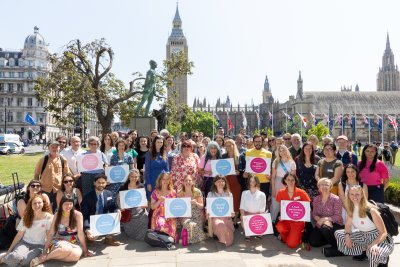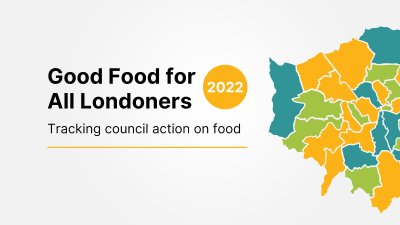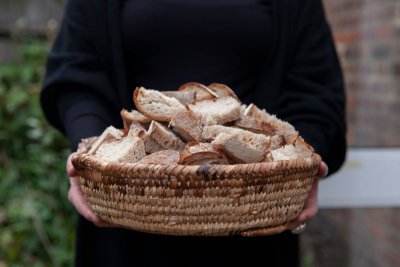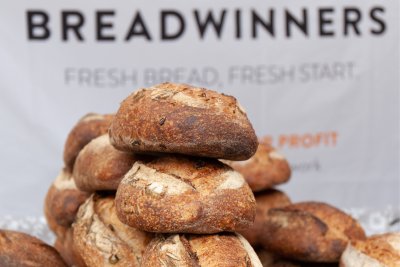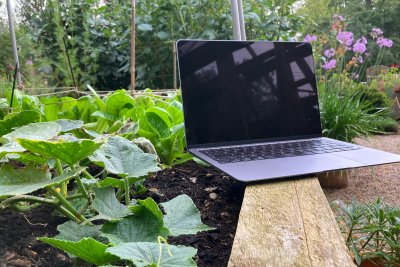Islington Street Trading Strategy
RE: LONDON BOROUGH OF ISLINGTON STREET MARKET TRADING STRATEGY 2007 – 2010
London Food Link response
London Food Link is part of the charity Sustain: the alliance for better food and farming, and we run a network of over 100 organisations and individuals, with members as diverse as farmers, food writers, caterers and community food projects. Both London Food Link and its members run projects that help to:
- increase the availability of sustainable food in London;
- tackle the barriers preventing access to sustainable food for all Londoners;
- celebrate and protect London's diverse food culture.
In responding to this consultation, we have endeavoured to consult our network, and particularly those who are involved in markets. We are confident that the views expressed below are broadly representative of London Food Link's network.
We would like to congratulate the London Borough of Islington on what is a thorough and forward thinking strategy. This strategy is a good example of a well developed approach to street markets that other London Boroughs would do well to follow. What is so encouraging about this strategy is that, not only is it addressing important issues - particularly health, environmental sustainability and the community – but it is also coming from a Council department with direct influence over these issues. As such, we are confident the strategy will be embedded in the Council's practices. The comments below suggest minor improvements on what is an impressive document.
Street Improvement
If you have not already done so, it may be worth you contacting Monica Hundal, business manager at the Innovation Centre at Central St Martin's College of Art & Design. She may be able to assist with designing street markets to make them more coherent and attractive, as she is examining how design can be used effectively to make street food attractive and relevant to the needs/desires of contemporary urban environments and societies.
Economic Regeneration
We agree that relationships between street traders and other retailers and businesses should be improved. The suggestion that traders supply public sector procurement is perhaps unfeasible, given the bureaucracy required to supply these establishments. However, it is possible that a wholesaler/distributor supplying the street markets, might tender to supply the public sector. In addition, suppliers and traders (particularly of fruit and vegetables) could play a role in supplying healthy tuck shops or market stalls in hospitals, schools and public sector institutions.
It is worth noting that business support for street markets and their traders is mentioned specifically in the Mayor's Food Strategy so if the Council decides to investigate this area further it might be worth approaching the London Development Agency Food Unit to see if they can offer advice or funding. Many street traders are entrepreneurs who, having identified a niche market, cannot secure financing for the capital costs of acquiring appropriate equipment. They may also need training/access to equipment for developing communications and promotional material, for example, menus, and nutrition information. The Learning & Skills Council's “Train to Gain” (www.traintogain.gov.uk) three-year funded program could help to meet the particular skills needs of market stallholders, such as maintaining food hygiene outdoors.
A Regional Food Group for London (as mentioned in the Mayoral Food Strategy, but not yet established) could support some of the services proposed under economic regeneration for example: identifying target sales markets; and compiling accessible, searchable on-line directories with supplier businesses classified by location and/or product. London Food Link is already working on such a directory for its pan-London membership.
Although destination markets can provide an influx of customers, it is important that this does not lead to them becoming over-gentrified and no longer being affordable to those on a lower income. However we appreciate that it is important for the markets to appeal to many different parts of a community.
Finally, on economic regeneration, we recommend that advice on incorporating environmental sustainability into starting and running a business should be a condition for any support given to business incubators by the Council.
Environmental Sustainability
We warmly welcome your ambitions to ensure that (environmental) sustainability is achieved. It might therefore be worth clarifying point 4, to read as follows (changes in italics), so that it includes other sustainable products as well as local ones:
'Promote that products at markets are produced and transported to the market in a way that has a lower impact on the environment, and that primary ingredients and materials are bought as locally as possible to the market.'
As well as minimising food miles, it is important to recognise and promote how traditional street markets have always contributed to environmental sustainability, for example: using minimal packaging for fresh produce; using minimal energy to maintain their stalls; providing a market for oversupply and class 2 produce that would otherwise go to waste/animal feed. Promoting such environmental benefits to current and potential customers might also help to increase sales.
We would suggest that, if possible, lower pitch rates or other financial incentives might be given to those traders who can demonstrate these or other environmental benefits.
Communities
We recommend street traders could be encouraged to sell fairly traded products, using similar financial and promotional methods to those outlined above. Fairly traded products help to extend the concept of community to other communities who are producing many of the goods being sold.
This section could also consider food culture which could be developed by, for example, running cooking demonstrations at fruit and vegetable stalls, and celebrating the diversity of fruit and vegetables at street markets by sampling recipes cooked with non-mainstream fruit and vegetables available from the stalls. Such events could foster collaborations between stallholders, restaurants/cafes and community projects, to showcase seasonal ingredients and/or ethnic cuisine, and promote, to market-goers, the taste and nutritional value of unfamiliar vegetables. With all foods, local and exotic, work could be done to investigate and communicate where the produce is from, and how it's grown, transported and traded so that stallholders are confident in accounting for their supply chains and can answer customers who ask questions about sustainability.
Health
While the initiatives mentioned in this section are excellent, it would be worth adding that new markets should be considered in those areas such as housing estates, where it is harder to obtain healthy, affordable food. We would also propose the following addition: 'Ensure that street traders are informed about the healthy start voucher scheme and are encouraged to accept these vouchers, providing both regular business for the trader and more economical produce for the voucher holder'.
Future Markets and Trading Sites
Private Markets
The creation of a 'contemporary street food concept' could make a positive contribution to 'food tourism', improved diet, and the promotion of London's cultural diversity. It could also enable the entry of small businesses into the food economy, including entrepreneurs from migrant communities that can use cultural food as a way to enhance street markets' economic and community role.
London Food Link's project “Sustainable food in multicultural communities” is encouraging ethnic food businesses to exploit the opportunities in the burgeoning market for sustainably produced food, while communicating cultural values such as authenticity and wholesomeness. But ethnic businesses have few options for testing products developed for a mainstream green customer, and often do not believe a market exists in their own communities. The Council could promote discounted scattered or market pitches to ethnic businesses to exploit these opportunities.
Farmers Markets
Building on the recommendations set out in the strategy, we believe the Council could help to promote the street market by having some fixed signage notifying people that there is a farmers market on Sundays. The Council could also support more farmers markets opening up in other parts of the borough, though this would need to be discussed in detail with London Farmers Markets.
The Council could support the existing farmers market by inviting stalls to other events it organises, as it has done in the past with the Islington green fair. The Council may also be able to assist in organising a similar annual event to that at West Hampstead in Camden, by helping local restaurants to use farmers markets produce and promoting this.
London Food Link would be very keen to offer assistance in any of the initiatives already set out in the strategy and in pursuing any of the suggestions outlined above.
Ben Reynolds
ben@sustainweb.org
Published Friday 23 March 2007
London Food Link: London Food Link brings together community food enterprises and projects that are working to make good food accessible to everyone in London to help create a healthy, sustainable and ethical food system for all.
